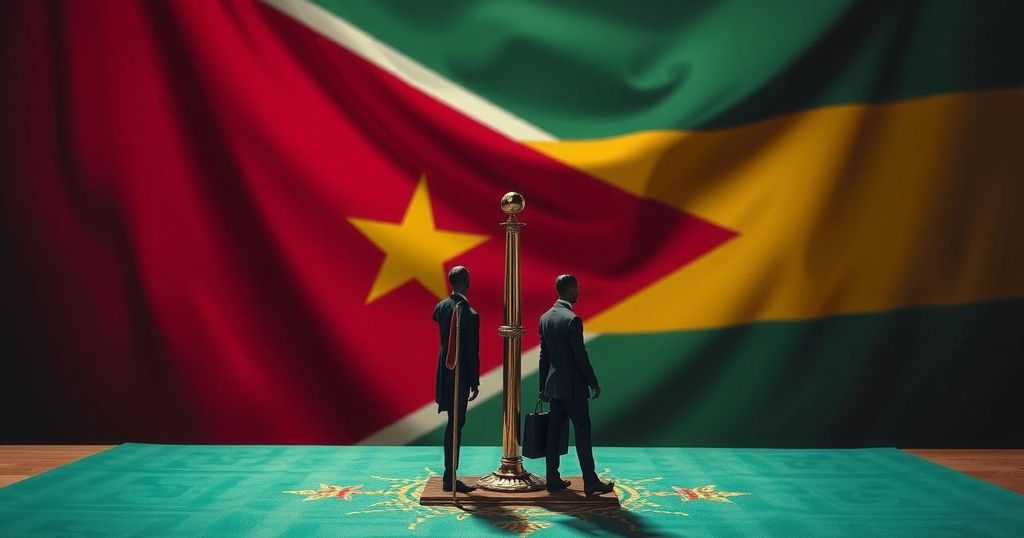South Sudan’s government has arrested key allies of Vice-President Riek Machar, raising alarms about the nation’s fragile peace deal established after a five-year civil war that ended in 2018. Ongoing violence, particularly in Upper Nile State, alongside political upheaval, threatens to destabilize the current unity government, prompting calls for international intervention to maintain peace.
The recent arrest of South Sudan’s oil minister and deputy army chief, both allies of First Vice-President Riek Machar, has raised concerns regarding the fragile peace agreement in the country. South Sudan, having emerged from a five-year civil war in 2018 through a power-sharing deal, is now facing heightened tensions that threaten to undermine its unity government. Violent clashes in Upper Nile State, particularly between the army and Machar’s allied rebels, have intensified fears about the stability of the government.
Information Minister Michael Makuei Lueth reported that a government garrison was besieged by rebels, suggesting a collaboration between Machar’s Sudan People’s Liberation Movement-in-Opposition (SPLM-IO) and the White Army, an armed group from the Nuer community. Following these events, both Petroleum Minister Puot Kang Chol and General Gabriel Duop Lam were taken into custody. Meanwhile, military forces surrounded Machar’s residence in Juba, though he remained at his office the next day.
The SPLM-IO denounced the arrests as unjust, calling them a violation of the peace agreement. Spokespersons emphasized the need for intervention by international partners to prevent escalation into full-scale conflict. The ongoing civil war has already claimed over 400,000 lives and left many aspects of the peace accord, such as constitutional drafting and elections, unfulfilled amid ongoing poverty despite the nation’s oil reserves.
The United Nations has reported rising violence in Upper Nile State, where heavy weaponry has been used and casualties have increased. The Intergovernmental Authority on Development (IGAD) voiced concerns that these clashes could jeopardize the peace agreement, exacerbating the humanitarian crisis. Diplomatic missions, including the United States and European Union, have urged restraint and commitment to peaceful dialogue, emphasizing the need for leaders to prioritize the well-being of the South Sudanese people.
Recent political maneuvers by President Salva Kiir, such as the dismissal of two vice-presidents without broader consultation, have been interpreted as attempts to consolidate power at the expense of Machar. Political analyst Abraham Kuol Nyuon warned that the country risks spiraling back into conflict due to the lack of dialogue and aggression among its leaders. This precarious situation underscores the urgent need for effective governance and cooperation among South Sudan’s leadership to ensure lasting peace.
In summary, the arrests of key military leaders in South Sudan have heightened tensions, raising serious concerns regarding the viability of the country’s peace agreement. Despite the potential for reconciliation following the civil war, political maneuvers and violent clashes threaten stability. Calls for international intervention emphasize the critical need for peaceful dialogue to avoid a return to conflict in South Sudan.
Original Source: www.lemonde.fr




